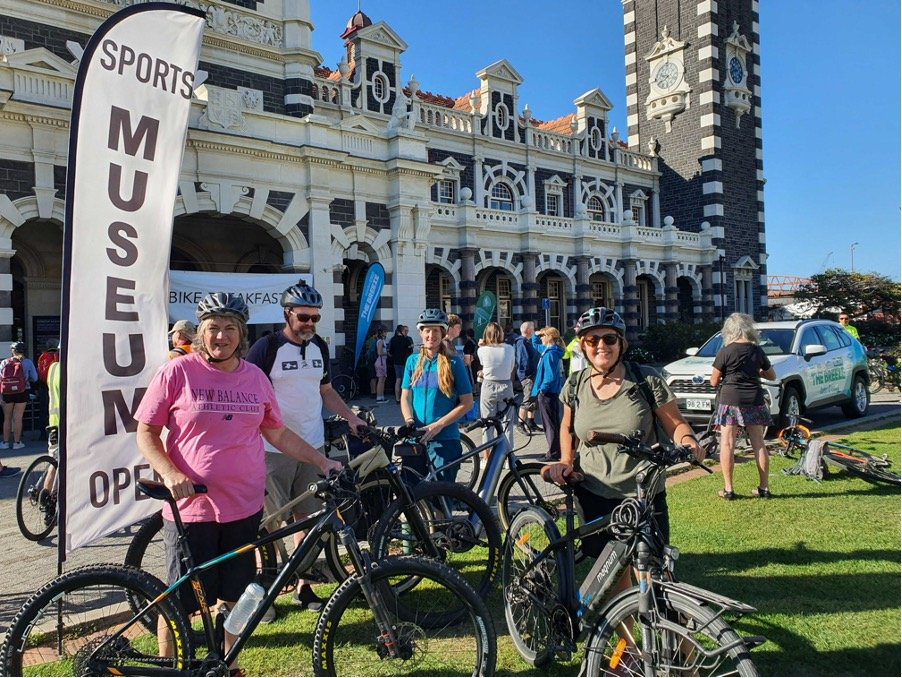Thankyou Payroll: Case Study
Here is an image of the Dunedin team, who participated in Bike to work month (February) 3 of whom biked the entire month to work instead of using a petrol car. Two of them have taken up the ebike interest free loan scheme offered by Thankyou Payroll.
1. What motivated you to begin working with Ekos and what do you aim to achieve?
Thankyou Payroll is a purpose driven business who believe there is more to doing business than just profit. We wanted to add more rigour to our carbon emission calculations which we had been calculating internally from 2015-2016, moving to use EKOS from 2017. This allowed us to be aligned with the ISO 14064-1 standard and to start working on where we could reduce emissions down and become a certified emissions neutral business.
2. What have you learnt from working with Ekos on carbon management? Have you seen any benefits? Were there any challenges and how did you overcome them?
We learned that we needed to take the time to look at our emissions profile and build a reduction plan in areas that we can start making incremental changes. An initial focus area for us was Business travel emissions, in particular flights. We made a business decision to only fly when necessary and reduce all company hui's from two to one a year. The main challenge is that we do need to travel for work and without technological advances in the aviation sector, we will not be able to reduce our emissions much more in this category.
3. What sustainability initiatives are you currently engaged in? and how will these impact your business for a sustainable future?
We provide free public transport for staff in our city offices, Wellington and Dunedin. This has had a significant impact in reducing our petrol commute to work emissions as more staff travel via bus/train vs cars to the office. In 2023 we also set up an interest free loan scheme for staff commuter ebikes. Both of these employee benefits have played a role in reducing our commute to work emissions by 25% in the past FY.
4. For you, what might a low carbon business look like?
A low carbon business is one that makes a commitment to continually trying to reduce business emissions where possible.
5. What areas have you looked at to make your GHG emissions report more complete? Have you learnt about improving your data collection?
Scope three is one area that we are actively investigating obtaining better emissions data for. Having now done the data collation for EKOS submission for four years, I have learned that you need to be proactive in looking at the data throughout the year, not just at year end. We have built trackers to assist our office managers for package data collection and we collate some of our emissions data like flights, electricity and waste monthly for internal reporting.
6. How do you communicate your actions and certification?
Our website has a link to our commitments in the sustainability space - this is also shared internally with staff and externally via our social media channels, also we share regular updates with our clients about our sustainability practices. We are the only payroll intermediary in NZ that is climate positive; we often share our journey and our ‘why at conferences to payroll practitioners, bookkeepers and accountants. Our team has also been part of panel discussions at CLC events and Wellington Regional Council transport forums, communicating what we do in terms of sustainable employee travel.
7. What are the links between your sustainability and social goals?
Thankyou Payroll wants to have a positive impact with a goal to show NZ businesses that you can operate in service of people and the planet.


